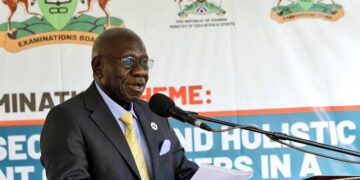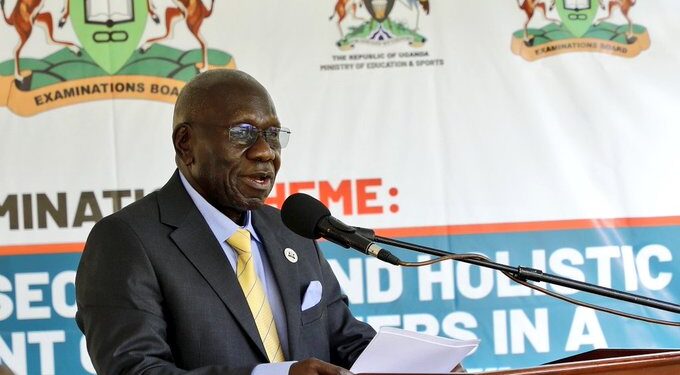The Uganda National Examinations Board (UNEB) has reported a significant rise in the number of candidates who sat for the 2024 Uganda Advanced Certificate of Education (UACE) examinations, alongside a decline in cases of malpractice.
Speaking at the official release of results at State House, Nakasero, UNEB Executive Director Dan Odongo revealed that a total of 141,996 candidates registered for the exams, marking a 28.4% increase from the 110,566 candidates in 2023.
He attributed this surge to changes in admission criteria for teacher training programmes.
“This is a very significant increase in candidature compared to previous years. The number of female candidates completing the cycle and sitting for the examination has also been rising, which is a positive development,” Odongo stated.
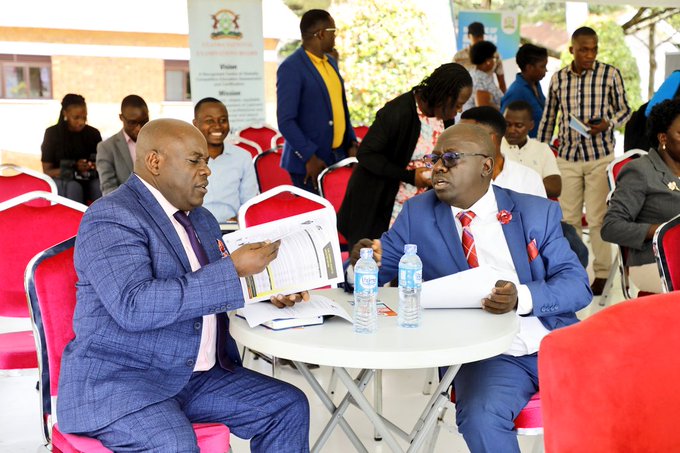
Despite the increased numbers, Odongo emphasised that cases of malpractice remained low. “Cases were reported from only 38 centres out of 2,255, and in accordance with the UNEB Act, the affected results will be withheld pending investigations,” he said.
UNEB Chairperson Prof. Celestino Obua echoed this sentiment, noting that UACE 2024 recorded the fewest malpractice cases compared to the Primary Leaving Examination (PLE) and Uganda Certificate of Education (UCE) exams.
“The affected candidates will be accorded hearings as provided by law, and for cases where there is insufficient evidence, results will be released,” Prof. Obua affirmed.
He further warned headteachers against providing fake results, adding that UNEB will publish the list of withheld cases to ensure transparency.
Challenges in Science and Language Subjects
In terms of performance, Odongo highlighted improvements in subjects such as Economics, Literature in English, Physics, and Biology, while Entrepreneurship, Mathematics, and Agriculture saw declines.
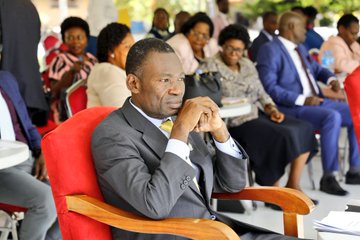
He also noted that female candidates outperformed their male counterparts in Humanities, General Paper, and even Physics at the principal pass level. With the steady rise in UACE candidature and efforts to curb malpractice, UNEB officials remain optimistic about the future of Uganda’s education system.
UNEB, however, highlighted continued challenges in Sciences, including inadequate practical exposure. Many candidates struggled to describe experimental procedures and interpret experimental setups from given diagrams, particularly in Physics.
Some provided experimental results without showing how they were obtained. “There is also the challenge of relating science concepts to real-life situations,” Odongo added.
Additionally, candidates offering local languages showed a lack of knowledge in cultural practices, proverbs, and translation skills.
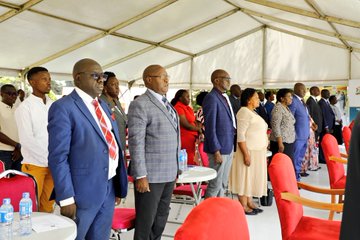
Need for More Science Students
Prof. Obua underscored the need to increase the number of students taking Science, Technology, Engineering, and Mathematics (STEM) subjects.
“The upward trend in candidates offering STEM subjects has continued, although the numbers are still well below those offering Humanities. Without downplaying the contributions of the Humanities, we need the Sciences to spur technological progress. Deliberate efforts must be made to increase the number of students offering Mathematics and Sciences,” Obua stated.
He emphasised that improving the adequacy of science teaching and learning materials in schools is a key strategy to achieve this goal.
